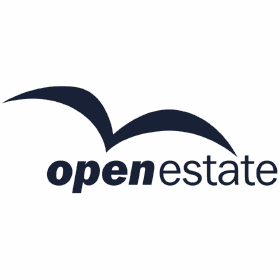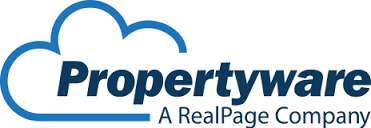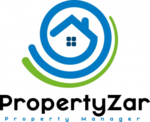Description
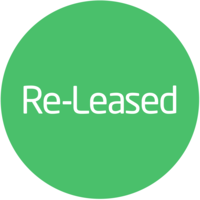
Re-Leased
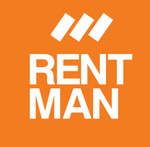
Rentman AV Rental
Comprehensive Overview: Re-Leased vs Rentman AV Rental
Re-Leased and Rentman are two distinct software solutions catering to different industries, with unique functionalities and target markets. Here’s a comprehensive overview of each:
Re-Leased
a) Primary Functions and Target Markets:
- Primary Functions: Re-Leased is a cloud-based property management software designed to streamline and simplify the management of commercial and mixed property portfolios. Key features include lease management, automated reminders, financial reporting, and tenant communication tools. It also offers integrations with accounting software like Xero and QuickBooks to enhance financial tracking and management.
- Target Markets: Re-Leased primarily targets commercial real estate owners, property managers, and landlords. It is suitable for those managing small to large property portfolios, looking for efficiency in lease management and financial operations.
b) Market Share and User Base:
- Re-Leased is a prominent player in the niche market of property management, especially within the commercial real estate sector. While specific user base numbers are typically proprietary information, Re-Leased holds a substantial share within its niche due to its specialized offerings and capability to integrate with popular accounting platforms. It has a global presence, with particularly strong traction in regions like the United Kingdom, Australia, and New Zealand.
c) Key Differentiating Factors:
- Automation and Integration: Re-Leased excels in automation of lease management tasks and integrates seamlessly with accounting platforms, providing a comprehensive tool for property and financial management.
- Focus on Commercial Real Estate: Its specialization in commercial properties, as opposed to residential, gives it an edge in addressing specific needs of commercial landlords and property managers.
Rentman AV Rental
a) Primary Functions and Target Markets:
- Primary Functions: Rentman is an all-in-one resource management software primarily used by audiovisual (AV) and event companies. It offers features such as equipment tracking, project planning, crew scheduling, and inventory management.
- Target Markets: The software is targeted towards AV rental companies, event production companies, and other businesses that require equipment management and project coordination, including film production and broadcasting industries.
b) Market Share and User Base:
- Rentman holds a significant position within the AV rental and event management sectors. While specific quantitative data on market share might not be publicly available, Rentman is known for its robust user base in Europe and North America, being a preferred tool for companies seeking to manage logistics and inventory in AV and event productions efficiently.
c) Key Differentiating Factors:
- AV and Event Focus: Unlike generic resource management tools, Rentman is tailored for the complexities of AV rentals and event planning, equipped with industry-specific functionalities like equipment handling and crew scheduling.
- User-Friendly UX and Customization: Rentman offers an intuitive user interface and customization options that allow businesses to tailor the platform to their workflow and specific project needs.
Comparison Summary
Though Re-Leased and Rentman operate in different industries, the comparison highlights how both platforms specialize in addressing niche market needs with tailored solutions:
- Re-Leased is centered around simplifying commercial property management with a focus on lease management and financial integration, serving real estate professionals.
- Rentman targets the AV rental and event management industries with features catering to equipment and project management, serving businesses involved in events and production.
Both products differentiate themselves through industry-specific functionalities and integration capabilities, thus maintaining strong positions in their respective markets.
Contact Info

Year founded :
2013
+64 800 004 615
Not Available
New Zealand
http://www.linkedin.com/company/re-leased

Year founded :
Not Available
Not Available
Not Available
Not Available
Not Available
Feature Similarity Breakdown: Re-Leased, Rentman AV Rental
To provide a comprehensive feature similarity breakdown for Re-Leased and Rentman AV Rental, we need to consider each product's core functionalities, user interface (UI), and unique offerings. While doing this, it's essential to recognize that the primary function of Re-Leased is property management, whereas Rentman is focused on AV rental management. Despite their different primary purposes, some overlap exists in general rental management aspects. Here's a breakdown:
a) Core Features in Common
-
Scheduling and Calendar Management:
- Both platforms provide robust scheduling tools. Re-Leased focuses on lease and inspection schedules, while Rentman offers equipment booking and project timelines.
-
Reporting and Analytics:
- They offer analytics features; Re-Leased provides property performance insights, while Rentman offers detailed equipment usage and financial reports.
-
Cloud-Based Accessibility:
- Both Re-Leased and Rentman are cloud-based, enabling users to access their platforms from anywhere and offering collaboration features.
-
Invoicing and Financial Management:
- They include functionalities for billing, invoicing, and tracking payments, although the specifics may differ according to their primary industry.
-
User Management:
- Both platforms allow multiple user roles and permissions, facilitating team collaboration and management.
b) User Interface Comparison
-
Re-Leased:
- Typically features a clean, user-friendly interface focused on simplicity and ease of use for property managers. The dashboard usually emphasizes portfolio metrics, upcoming lease events, and financial overviews.
-
Rentman:
- Rentman's UI is designed for quick navigation between equipment schedules, project management, and financial data. It favors a modular approach allowing users to customize their views according to projects or equipment availability.
Overall, Re-Leased might present a more straightforward UI tailored to real estate professionals, while Rentman's interface is adaptable to handle the complexity of AV rental logistics.
c) Unique Features
-
Re-Leased:
- Lease Management: Specifically tailored for managing leases, including lease auditing, automated reminders, and legal compliance.
- Maintenance Management: Includes specific tools for tracking maintenance issues related to properties.
-
Rentman AV Rental:
- Equipment Tracking and Management: Offers detailed asset tracking, maintenance scheduling, and availability forecasting specific to AV and equipment rental.
- Project Planning: Features tools for crew scheduling, transport logistics, and on-site requirements unique to event production.
Each product serves its niche with distinct features, making them well-suited for their respective markets. Re-Leased is optimized for real estate management while Rentman is equipped to handle the complexities of AV rental and event planning.
Features

Not Available

Not Available
Best Fit Use Cases: Re-Leased, Rentman AV Rental
Re-Leased and Rentman AV Rental are software solutions tailored for specific industries and use cases, each offering distinct features that cater to the needs of their respective target audiences. Here's a detailed breakdown of when each might be the best fit:
a) Re-Leased
Best Fit Use Cases:
-
Commercial Real Estate Management: Re-Leased is designed primarily for commercial property management, making it an excellent choice for businesses focused on managing office spaces, retail properties, industrial sites, or mixed-use developments.
-
Property Management Companies: Companies that oversee a portfolio of properties can leverage Re-Leased’s centralized platform to streamline operations, enhance tenant communications, and maintain financial oversight.
-
Real Estate Agencies: Agencies involved in leasing and asset management can benefit from Re-Leased's automation and reporting tools, which help in optimizing lease management and maintaining clear financial records.
-
Landlords and Property Owners: Individual landlords or property owners with multiple commercial properties can utilize Re-Leased for efficient management of leases, payments, and property maintenance tasks.
b) Rentman AV Rental
Preferred Scenarios:
-
Event Production Companies: Rentman AV Rental is ideal for companies involved in the planning, management, and execution of events that require AV equipment. This includes concerts, corporate events, festivals, and other entertainment settings.
-
Audio-Visual Equipment Rental Businesses: Businesses that rent out AV equipment for events can use Rentman to manage their inventory, coordinate logistics, and schedule rentals effectively.
-
Film and Video Production Services: Companies in the film and video production industry often require precise scheduling and management of equipment. Rentman provides tools to handle bookings and logistics seamlessly.
-
Theater Productions and Stage Events: Organizations involved in theater and stage productions can use Rentman to manage lighting, sound equipment, and logistics, ensuring a smooth operation from setup to performance.
d) Catering to Different Industry Verticals and Company Sizes
-
Industry Verticals: Re-Leased primarily caters to the real estate and property management industry, focusing on commercial real estate. Rentman AV Rental, meanwhile, is tailored for the events and entertainment industry, including live productions, AV rentals, and production services.
-
Company Sizes:
-
Re-Leased is scalable for small to medium-sized enterprises (SMEs) through to larger property management firms. Its comprehensive features allow it to grow with a business as its property portfolio expands.
-
Rentman AV Rental serves small rental businesses to large event production companies. Its flexible pricing models and feature sets make it suitable for varying sizes of operations, from companies just starting to those with extensive, complex inventories and scheduling needs.
-
In essence, the choice between Re-Leased and Rentman AV Rental largely depends on the industry focus and specific operational needs of a business. Each software solution is highly specialized to serve its respective vertical efficiently and effectively.
Pricing

Pricing Not Available

Pricing Not Available
Metrics History
Metrics History
Comparing teamSize across companies
Conclusion & Final Verdict: Re-Leased vs Rentman AV Rental
Conclusion and Final Verdict for Re-Leased vs Rentman AV Rental
After careful examination of both Re-Leased and Rentman AV Rental, the decision between which product offers the best overall value will depend significantly on the specific needs and context of the user. Here is a summarized analysis based on key considerations:
a) Best Overall Value
Re-Leased tends to offer the best overall value for users who are primarily focused on property management within the commercial real estate sector. Its features are tailored to simplify tasks such as managing leases, tracking maintenance requests, and handling tenant interactions.
Rentman AV Rental, on the other hand, provides better value for users who require a comprehensive solution for audiovisual equipment rental management. Its strong suits are inventory management, equipment scheduling, and seamless coordination of AV projects and events.
b) Pros and Cons
Re-Leased
- Pros:
- Specialized in real estate management with robust tools for managing leases and rent collection.
- Offers real-time insights and reporting, enhancing decision-making with data-driven strategies.
- Cloud-based platform allows for remote access and collaboration.
- Cons:
- Less suitable for industries outside property management, particularly if the user requires AV-specific functions.
- May involve a learning curve for non-expert users who aren't tech-savvy.
Rentman AV Rental
-
Pros:
- Comprehensive features for asset management, perfect for handling AV equipment and event scheduling.
- Facilitates project planning and logistics with detailed timelines and booking capabilities.
- Designed to streamline communication between team members and clients.
-
Cons:
- Primarily tailored for the AV industry, thus may lack features necessary for real estate businesses.
- Could be excessive for users with minimal equipment or AV needs.
c) Recommendations for Users
-
Determine Your Primary Need: If your main focus is on managing real estate properties, Re-Leased is likely the better choice. However, if your priority is in the field of AV equipment leasing and event management, then Rentman AV Rental will better align with your needs.
-
Evaluate Feature Necessity: Outline the features you absolutely need versus those that would be nice to have. Re-Leased excels in property-related features, while Rentman is unmatched in equipment and event management.
-
Consider Integration and Scalability: Examine how each platform integrates with your current systems and whether it can scale alongside your business growth. Both platforms offer cloud connectivity, but they integrate better with different kinds of industry-standard software and services.
-
Trial Period and Support: If possible, take advantage of trial periods offered by either service to better understand how each can cater to your operations. Also, evaluate the quality and availability of customer support for ongoing assistance.
Ultimately, the decision should be guided by the nature of your business operations and strategic objectives. Careful mapping of product features against business requirements will lead to selecting the platform that offers the best overall value for you.
Add to compare
Add similar companies
